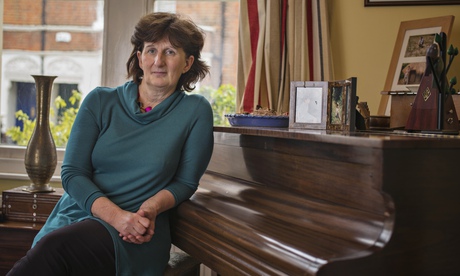
“Thousands have lived without love, not one without water,” observed WH Auden. This absorbing, apocalyptic debut novel set in a drought-stricken community depicts what happens when people are faced with an existence deprived of both water and love. The only place it rains is on an isolated farm called the Well – the home of narrator Ruth – around which envy and suspicion swirl so intensely that relationships deteriorate, love turning to hate. The disturbing dystopian vision calls to mind fiction by Margaret Atwood and Michel Faber although stylistically Chanter has developed a strong voice of her own.
Unreliable narrators take the reins of much fine fiction and Ruth is a powerful addition, drawing us into her intimate story, even as we lurch between doubt and certainty about her sanity. To what extent should we trust Ruth’s version of events? The question keeps us gripped. The novel begins when Ruth returns home to the Well, released from prison but remaining under house arrest, bound by the Drought Emergency Regulations Act. Ruth remains emotionally trapped, too, by painful memories.
The story ebbs and flows between present and past, with some startling stream-of-consciousness scenes. It was a new beginning that Ruth and her husband Mark yearned for when they left London for the Well, but their dreams turned nightmarish: Ruth became entangled in a sinister religious cult; her marriage and mind disintegrated; her beloved grandson Lucien ended up dead. Suspense rises as secrets gradually leak out about why Ruth was charged with being “derelict in her duty towards a minor, resulting in death”.
Belief is a beguiling theme and Chanter perspicaciously probes beneath the surface, questioning what makes us believe in others, and what makes us believe in our own selves. Some stylish storytelling makes us, at times, suspend our disbelief.
Chanter is also a poet, and the novel’s greatest power is not its patchy plot but its lyrical language: this unsettling tale about the mind in turmoil is awash with imagery of water as Chanter explores the sense of identity as fluid, truth a slippery thing, certainties dissolving. Fiction proves a terrific tool for testing what exists and what is merely a figment of the imagination.
Finding words is as urgent for Ruth (who berates her “sandpaper tongue”) as finding water is for others. As love and water drain out of characters’ lives, language swells in to tell a frightening and forceful story about what sustains and nourishes us, what keeps us well.
The Well is published by Canongate (£7.99). Click here to order it for £5.99

